Driveway Paving – What You Need To Know
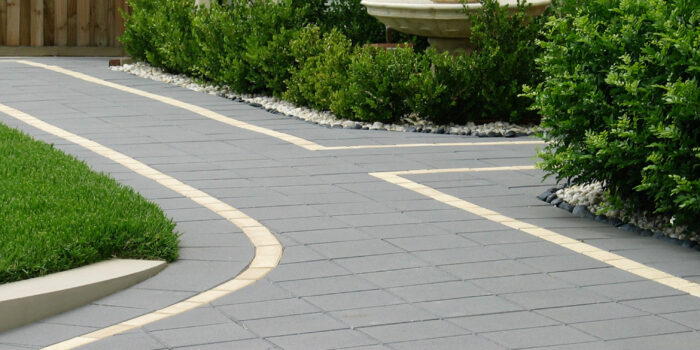
Your driveway isn’t just practical but it’s also a feature entry point to your home so you want to ensure it’s not only durable and long lasting but looks great too. It’s one of the first things people notice about your house and doing the job well will also add value to your home.
There is more to driveway paving than you think and there are many things you need to consider before not only purchasing your driveway pavers but laying them as well. At Australian Paving Centre, we’re here to help guide you every step of the way and you can also visit your nearest APC store to discuss your driveway paving with our helpful staff.
So Why Choose Pavers Instead of Concrete?
There are a lot of benefits in choosing pavers over concrete. Pavers offer a bigger range of colours, patterns and textures that you can’t necessarily achieve with poured concrete. You can also get greater flexibility with pavers as they can be curved, mix and match your colours and add a complementary border and there are many types of paving patterns you can incorporate into your driveway. You can see more about paving patterns here.
Pavers also don’t have hairline cracks and unsightly expansion joints that are so easily spotted in concrete driveways. Pavers are extremely durable, versatile and even better, they are really easy to maintain. They are ideal for highly reactive soil types, which are extremely prevalent in Adelaide.
Pavers are also simple to repair. A truck reversing into your driveway might cause the odd cracked paver but this can be easily and inexpensively repaired, in comparison to concrete which can be difficult to repair.
Pavers can also be lifted off the ground if underground services are required — such as sewer, power, storm water pipes, etc. Driveway pavers are a much simpler alternative than having to cut up concrete and patch it up.
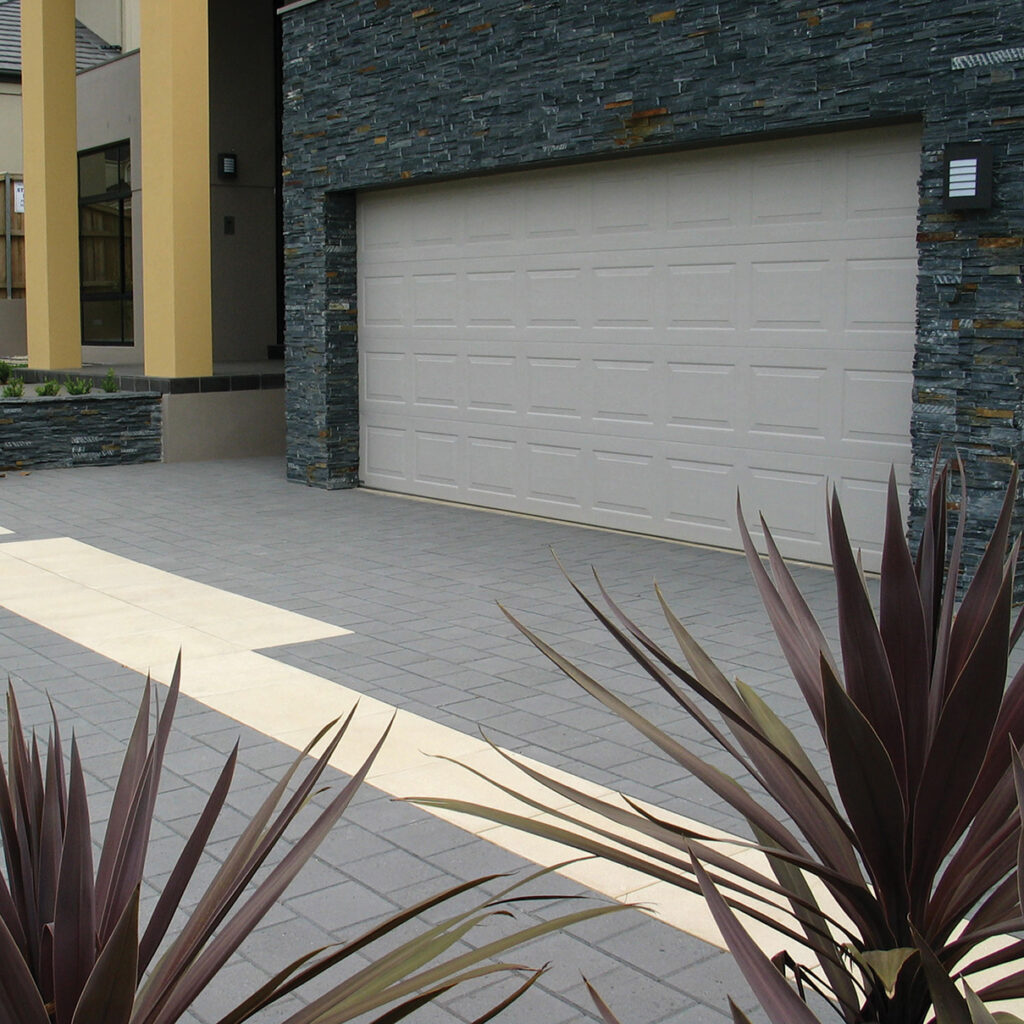
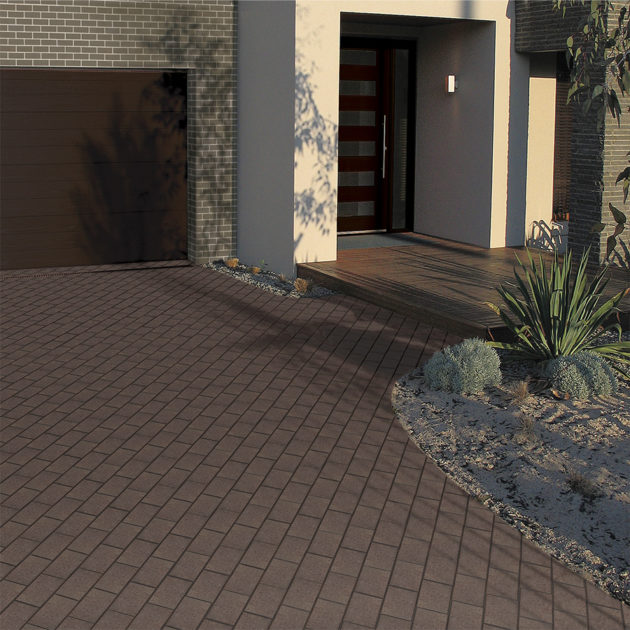
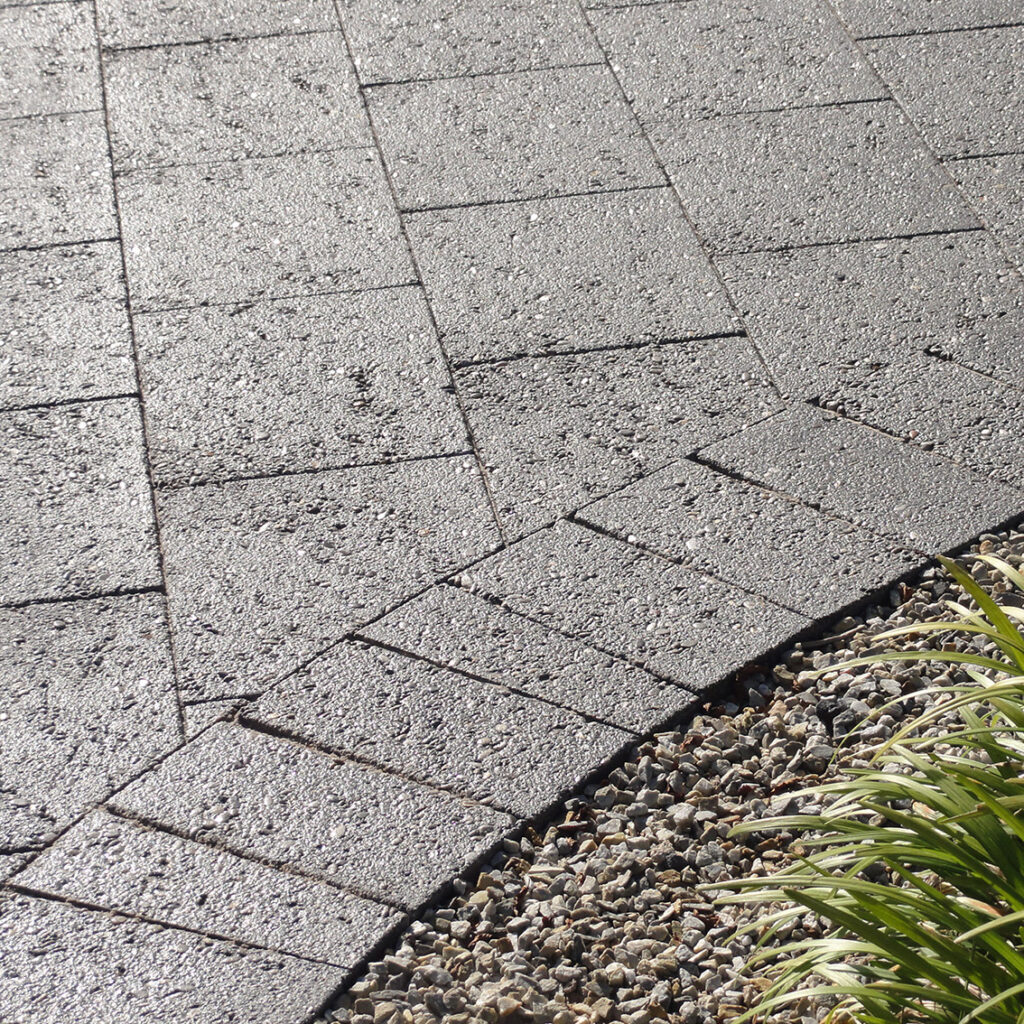
Do You Have a Steep or Curved Driveway?
If the answer is yes, then driveway pavers are the answer. Driveway pavers can be laid to match the curves or undulating land and you just need to choose the right paver to suit this. If your driveway is steep or sloped, then choosing a brick style paver means you can lay them in a herringbone pattern which provides greater strength and durability. Plus over time, the more compaction, the stronger the paving gets. There is also a range of slip-resistant pavers, such as our exposed aggregate or shot blasted pavers to help provide further traction on your sloping driveway or if they are exposed to more water. You can view some paving pattern ideas here.
You also need to consider the type of traffic or loading that the paving is likely to incur so your paving pattern is very important. Your pavers need to withstand many pressures such as weight and twisting and turning of wheels so to have minimal movement in your pavers, interlocking paving patterns is recommended such as a herringbone paving pattern or basket weave paving pattern.
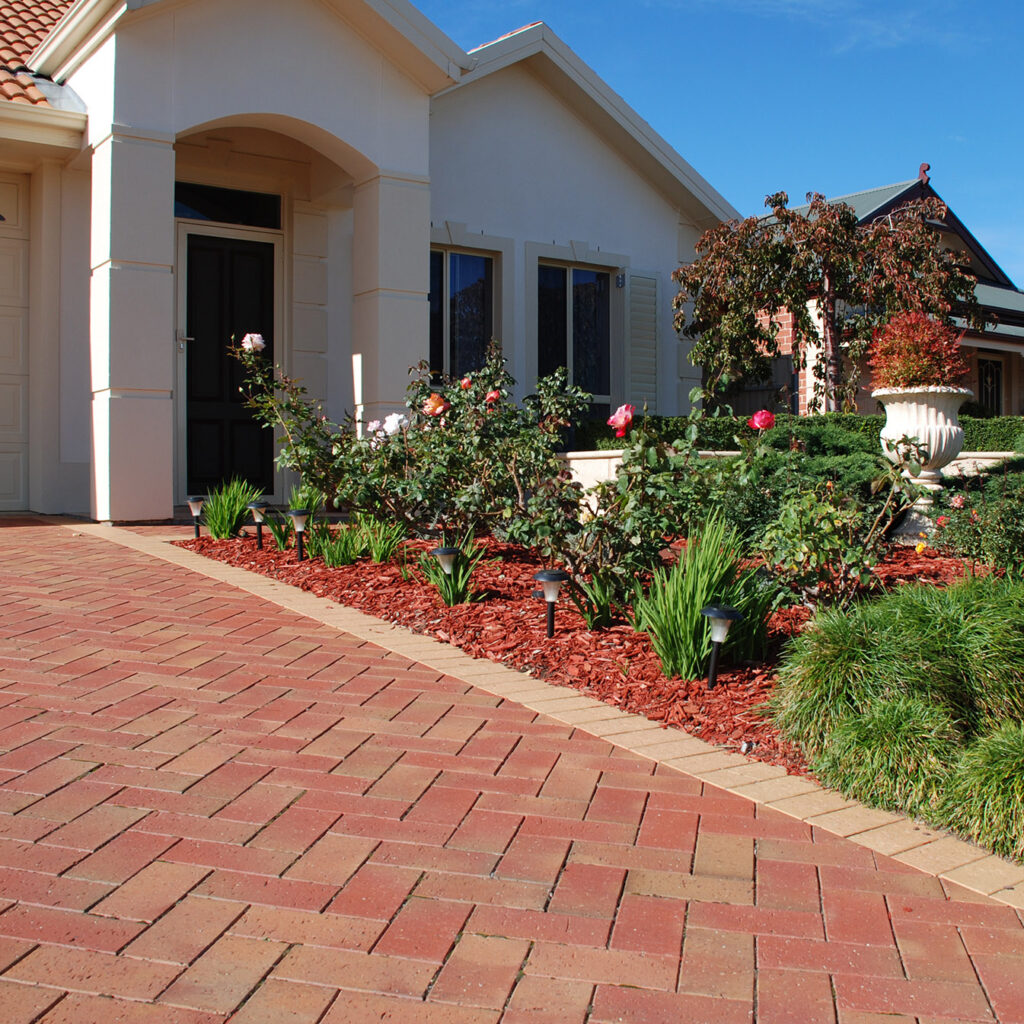
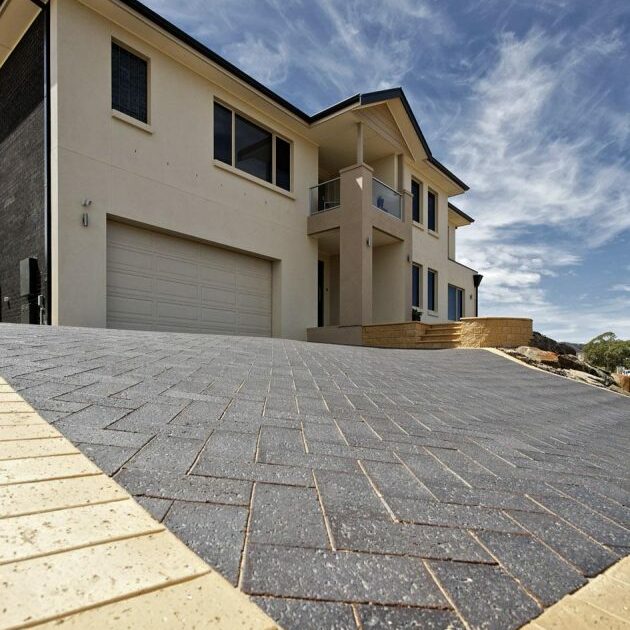

What Thickness Does a Driveway Paver Need to Be?
It is recommended that your driveway pavers must be 50mm or 60mm thick which is thicker than most standard pavers so it can bear the weight and movement of your vehicles. Pavers for around your home such as patio pavers are usually 40mm thick and don’t have the capacity to take the pressures as a driveway paver and will crack over time. 60mm pavers are generally used for commercial applications.
How to Choose Your Paver
Once you know what type of paver you need for functionality, your next step is to choose the style and colour of your paver to match the aesthetics of your house and yard. If you are paving your driveway before your landscaping, keep in mind if you will be doing any paving to your front door, pathways, or garden walls and edging or retaining walls. You may want to ensure that all these elements are either consistent in colour or complement each other. At APC, our extensive range of garden walls, and edging, as well as retaining walls, will match most of our driveway paving range.
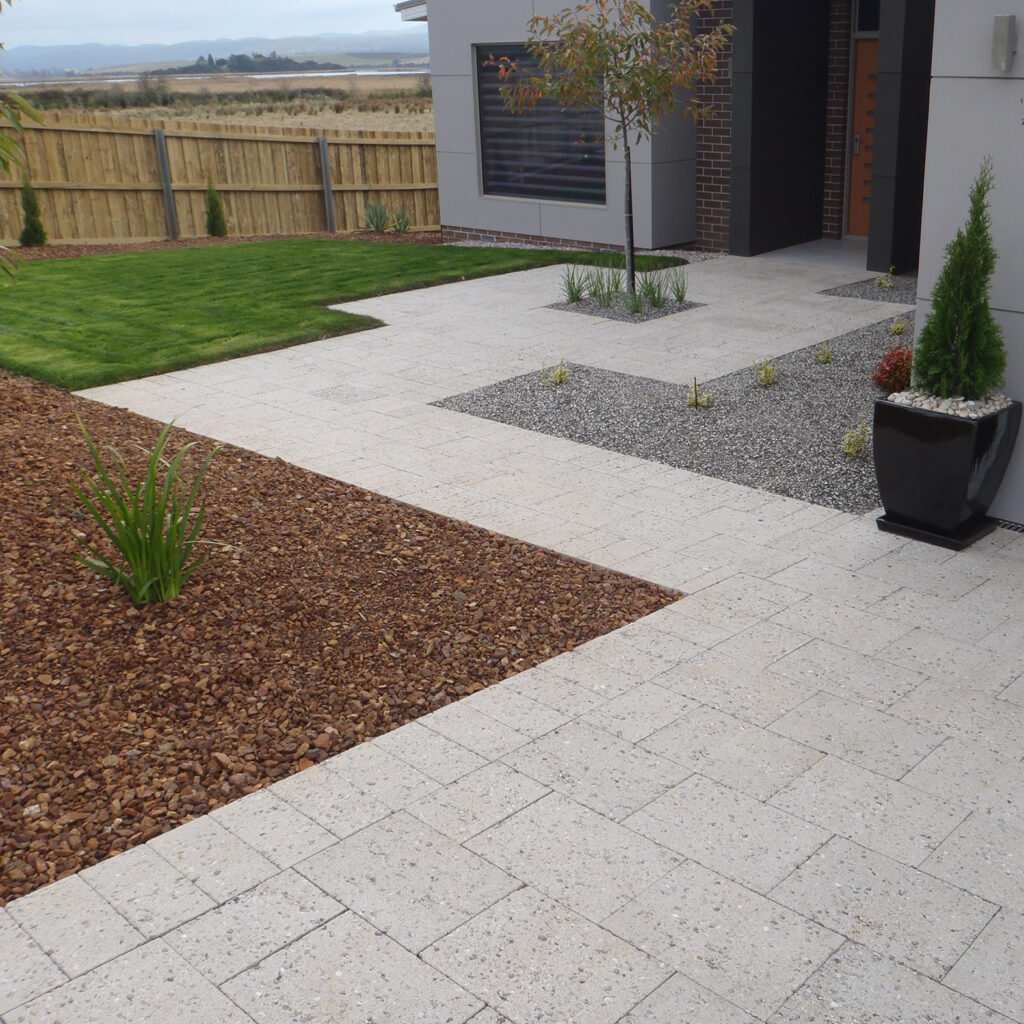
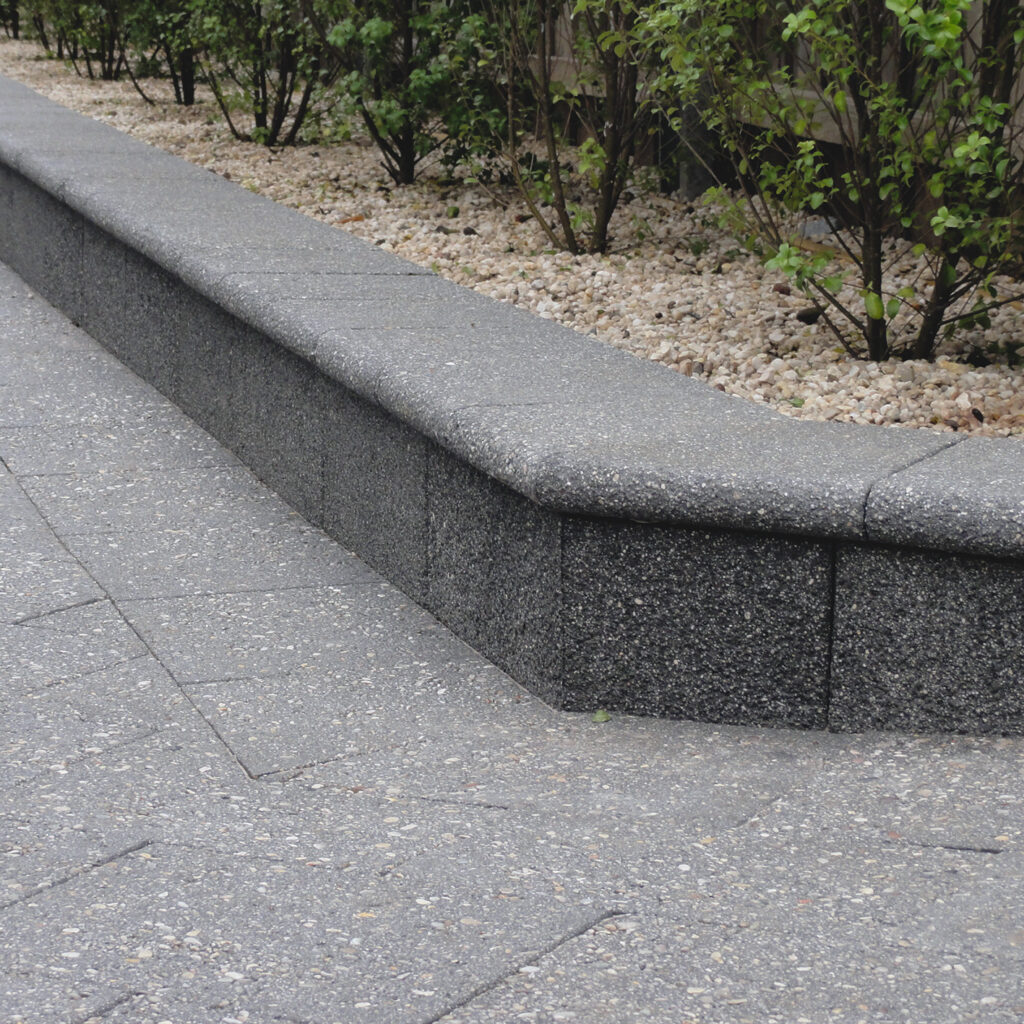
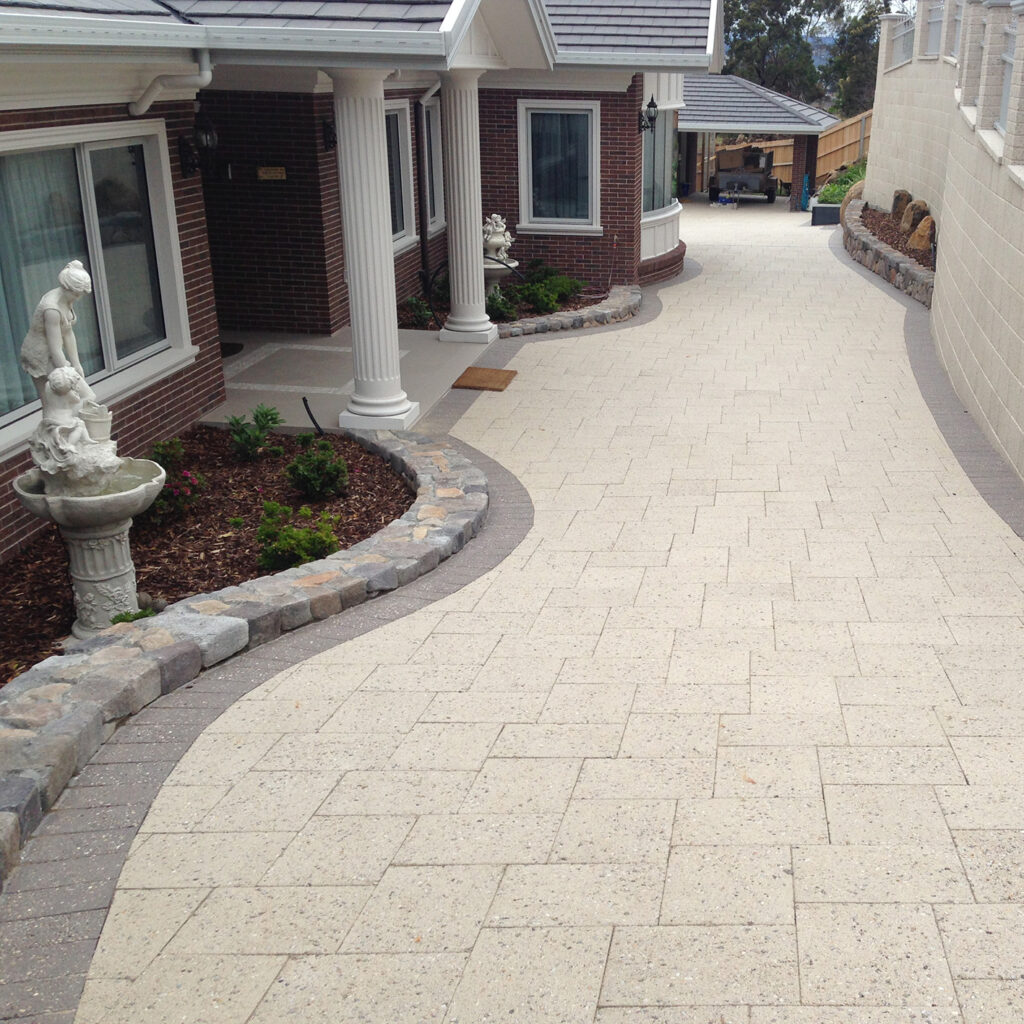
Our most popular driveway pavers are –
You also need to keep in mind how your driveway will be used – car tyres, trailers, oil spills etc so you may want to consider a darker style of paver such as a charcoal paver, to hide any marks and keep it looking at its best. You could also go one step further and seal your driveway and we have a range of sealers you can use.
If you like a lighter colour paver or you can’t decide between two different colours, you could incorporate these into the design pattern of your paving with a border, diamond shapes or lines. You can even change up the size and shape of your pavers to create eye catching styles.
Why Your Driveway Paving Pattern Is Important
We recommend that your paving pattern for your driveway should have the pavers interlocking for lasting results. Weight is a consideration and even if you don’t have heavy vehicles such as a truck or caravan on them regularly, consistent weight and movement over time can cause damage if their weight is not taken into consideration. 50mm or 60mm pavers used with ‘herringbone’ or ‘basket weave’ pattern is popular for driveway paving patterns. Alternatively, a ‘basket weave’ pattern using different coloured brick or clay pavers can look visually stunning, as well as ‘herringbone’ using two colours. If you decide to choose a ‘stack bond’ or ‘stretcher bond’ paving design, there should be a row of edge pavers laid on a cement base to stop the turning wheels of a heavy vehicle from shifting the pavers.
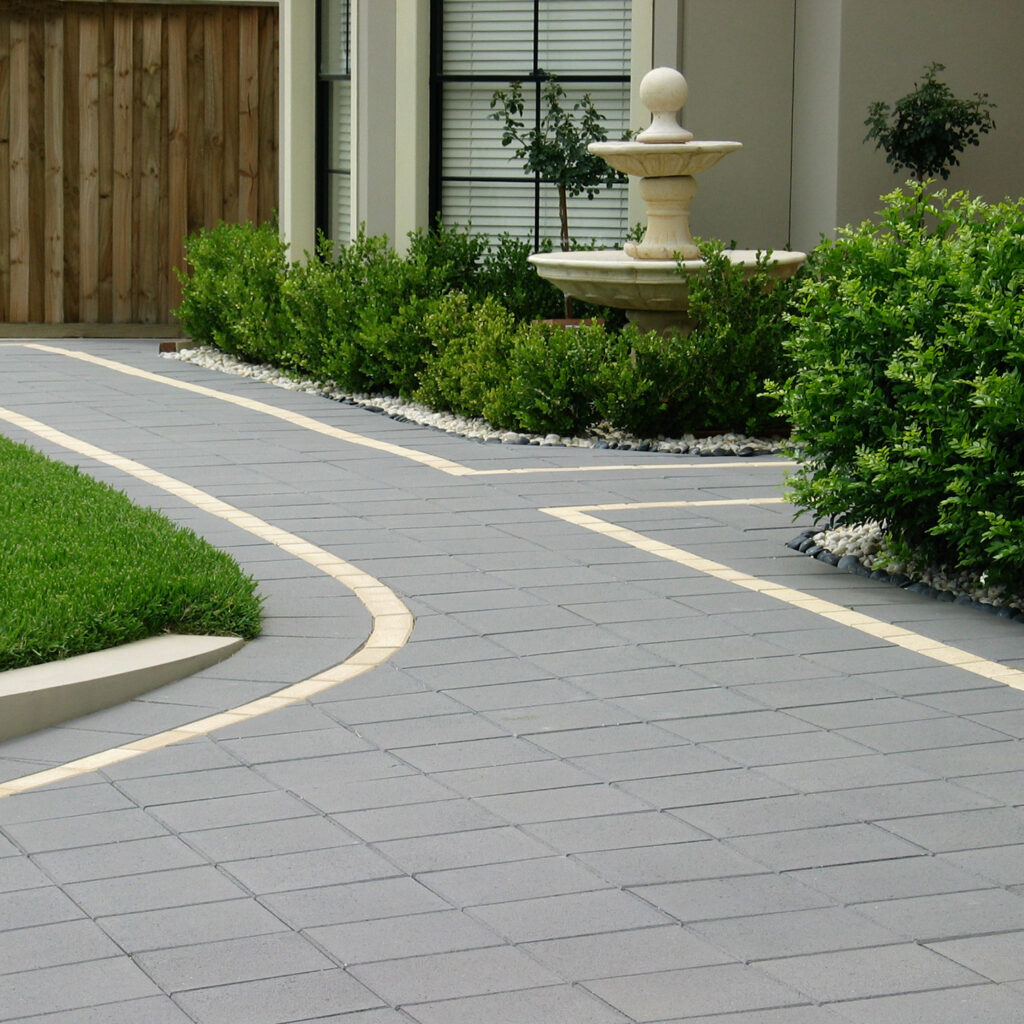
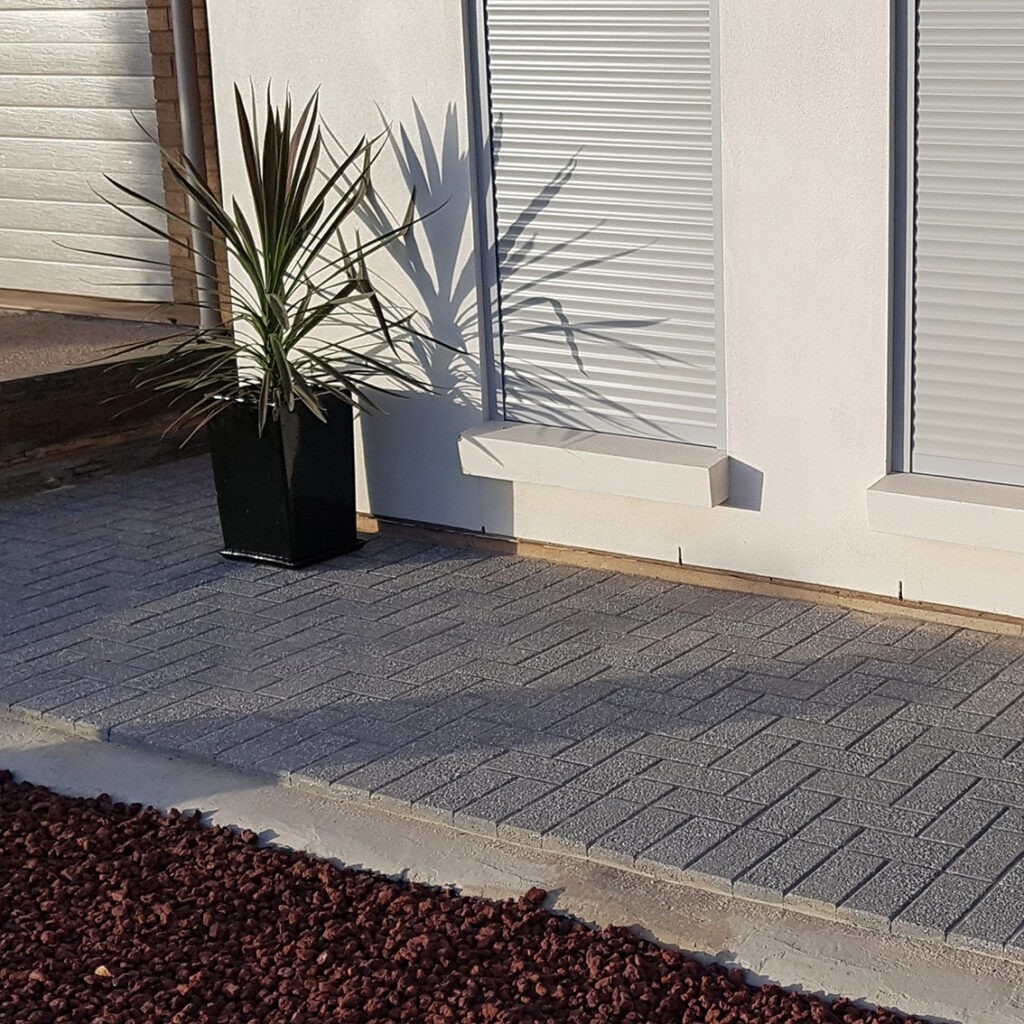
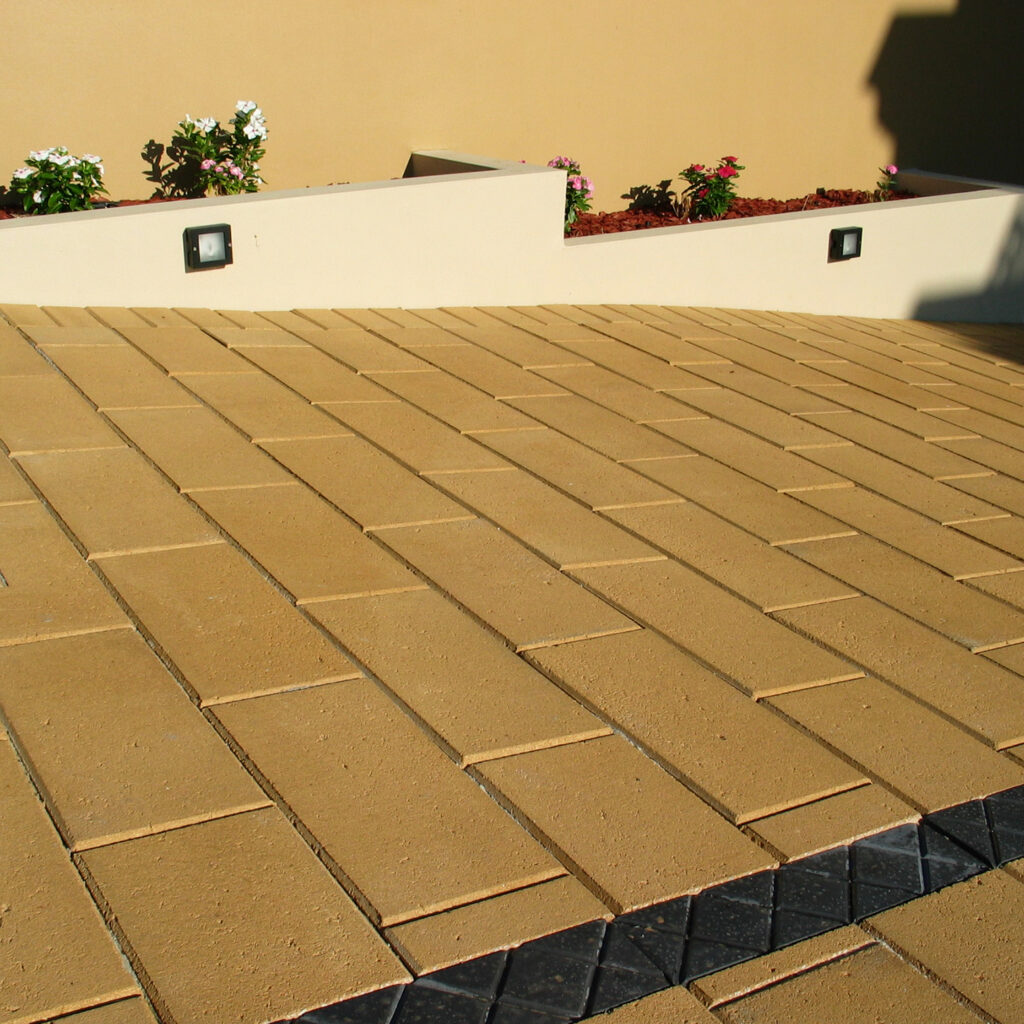
Base Preparation Is Key
It is important that your driveway pavers are laid correctly which includes the base preparation underneath the pavers. This will ensure that your pavers will last and minimise movement. We can help connect you to the right tradie for the job and you can request a quote online.
Care and Maintenance of Your Driveway Pavers
You’ve invested money and time into your driveway pavers, now you want to maintain them to ensure they look their best! Sealing your pavers will help keep your pavers clean and resistant of stains such as tyre marks and oil. Remove or spray any weeds that start to come up between pavers as quickly as possible to minimise any movement with your pavers.
You can view our range of driveway pavers here which include clay pavers, concrete pavers, brick pavers, commercial pavers, cobblestone, exposed aggregate and permeable paving.
Browse through our selection of pavers or visit your local APC store to view our extensive paving patterns and designs and check out our displays and talk to our expert staff about your needs. Or you can request a quote online.
Visit us at APC to pick up a free sample!
Or, send us a product enquiry or request a quote online


